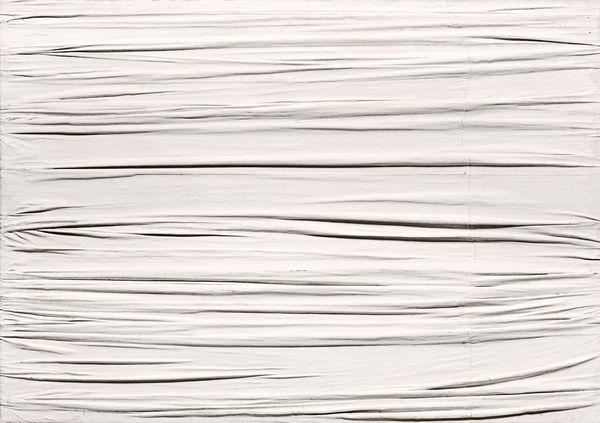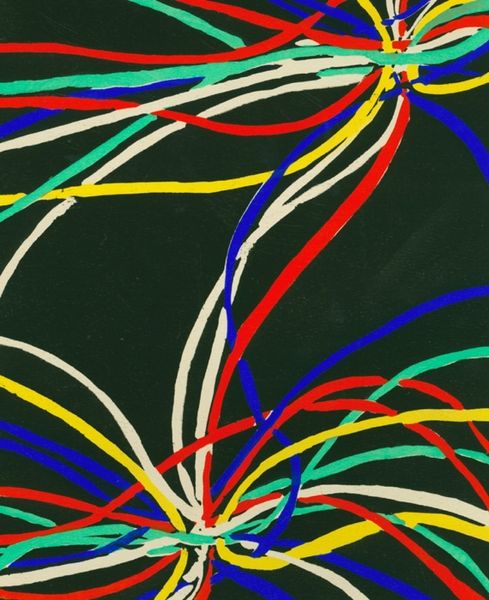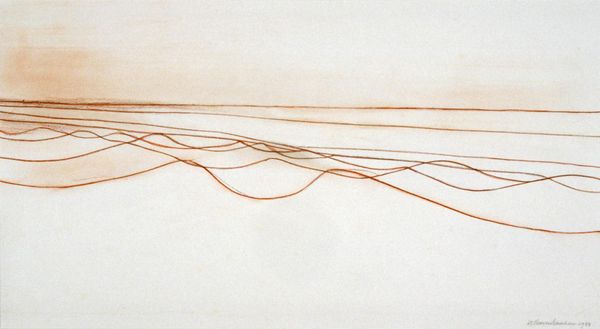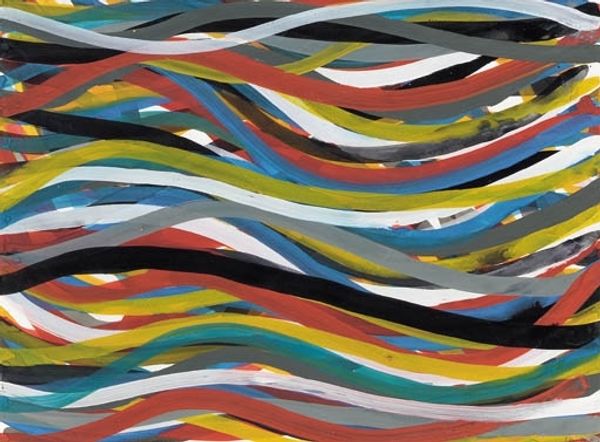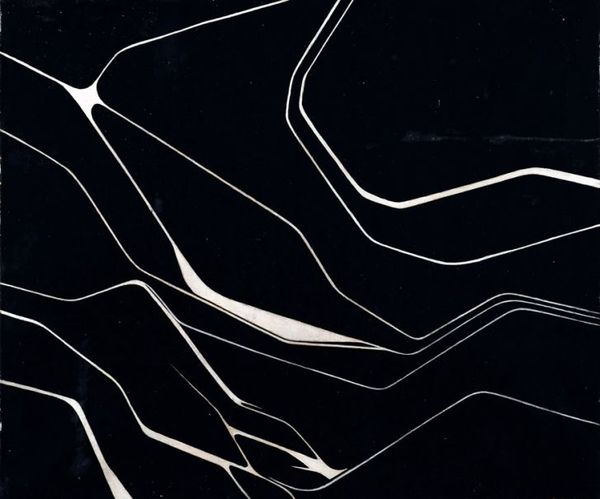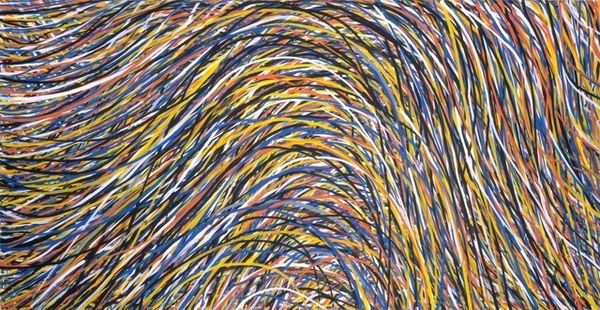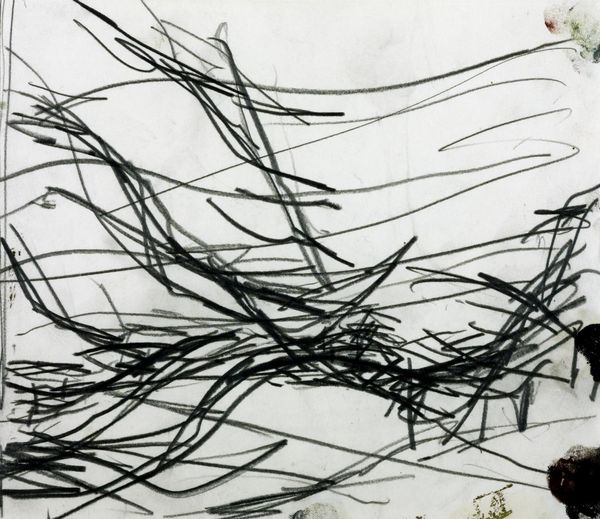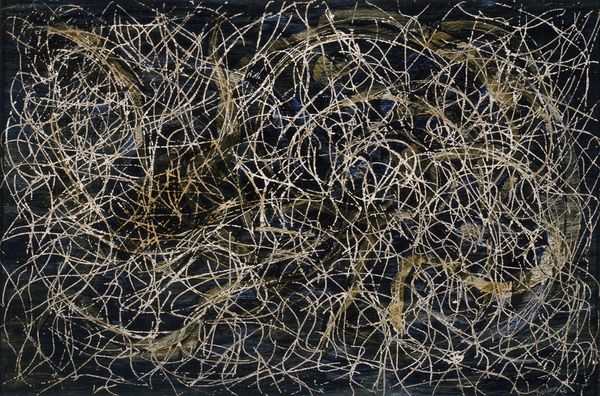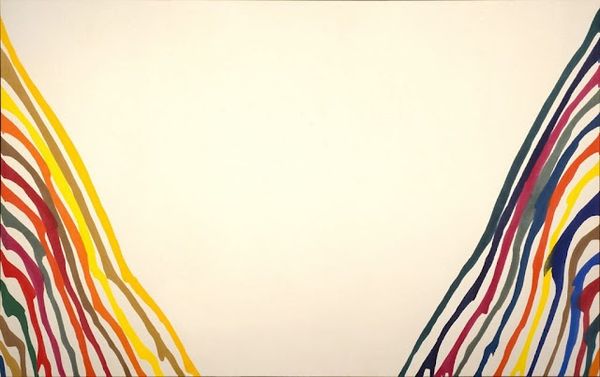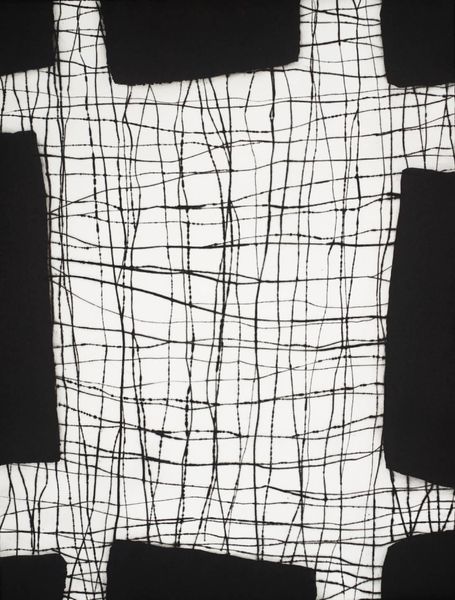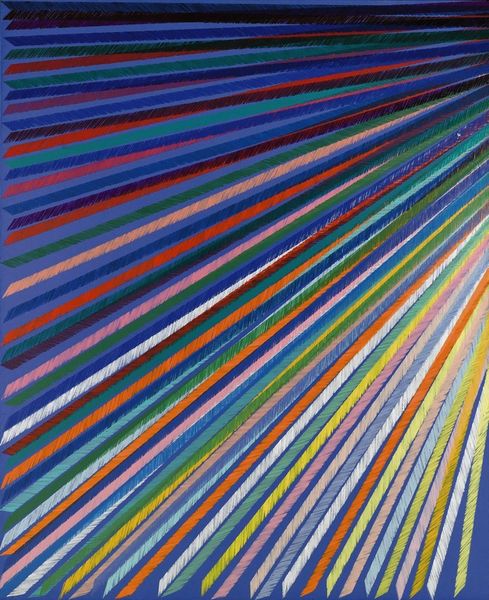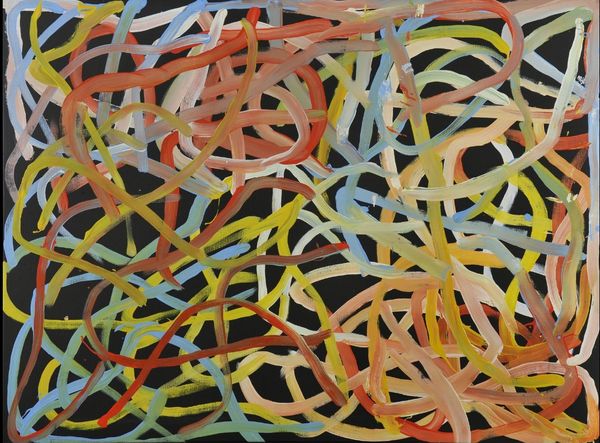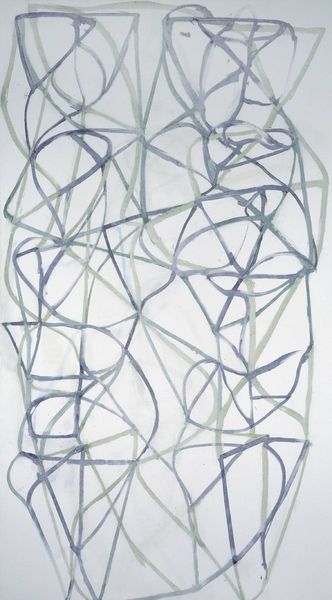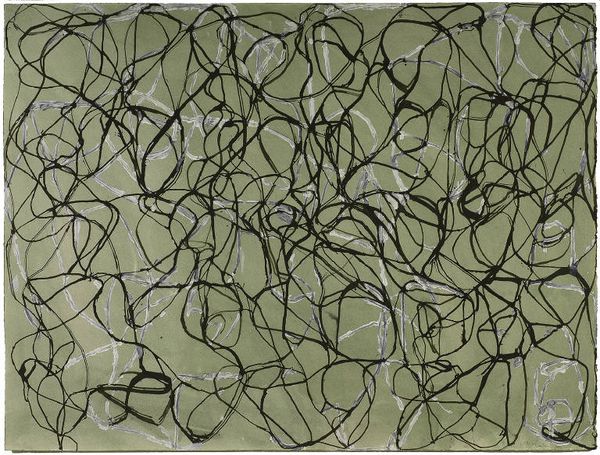
acrylic-paint
#
contemporary
#
minimalism
#
landscape
#
acrylic-paint
#
abstraction
#
line
Copyright: Spencer Finch,Fair Use
Editor: Spencer Finch's "Lake Whitingham Vermont July 20 2002 (morning effect)", created in 2002 using acrylic paint, strikes me as an almost meditative piece. The simple, horizontal lines give a sense of tranquility, but there's also something quite abstract about it. How do you interpret this work? Curator: It’s interesting that you say that. From a historical perspective, Finch’s work sits within a lineage of landscape art grappling with representation and perception. Think about how notions of the sublime landscape, popularized in the 18th and 19th centuries, were tied to national identity and power. How does Finch's seemingly simple abstraction engage with or challenge those earlier traditions and their ties to political power structures? Editor: I see what you mean. Earlier landscape paintings were often grand and romanticized, almost propagandistic in a way. Finch's painting is much more subtle, less obviously heroic. Curator: Exactly. Finch shifts the focus from a panoramic view to a subjective experience. He recorded a specific moment, a particular morning. Do you think this specificity—the date in the title, for instance—impacts the reception of this otherwise minimalist piece? Editor: I think it makes it more relatable, maybe? It hints at a real place and time, so even though it’s abstract, you can imagine being there, experiencing what Finch experienced. It personalizes the work for the viewer. Curator: Precisely. And it points to the institutional framing of art. Consider how museums validate particular experiences and voices, and the narratives they construct around artists and places. This small-scale work finds its place within that system, raising questions about how value is assigned to art and what constitutes a "significant" landscape in contemporary culture. Editor: That's fascinating. I hadn't considered the museum's role in shaping how we see this painting, almost like it legitimizes the artist's perspective. I definitely see more layers to it now than I did initially. Curator: And I appreciate how your initial emotional response gives us an anchor in considering its broader societal implications. It reminds me that art historical analysis should not erase subjective engagement, but be enriched by it.
Comments
No comments
Be the first to comment and join the conversation on the ultimate creative platform.
